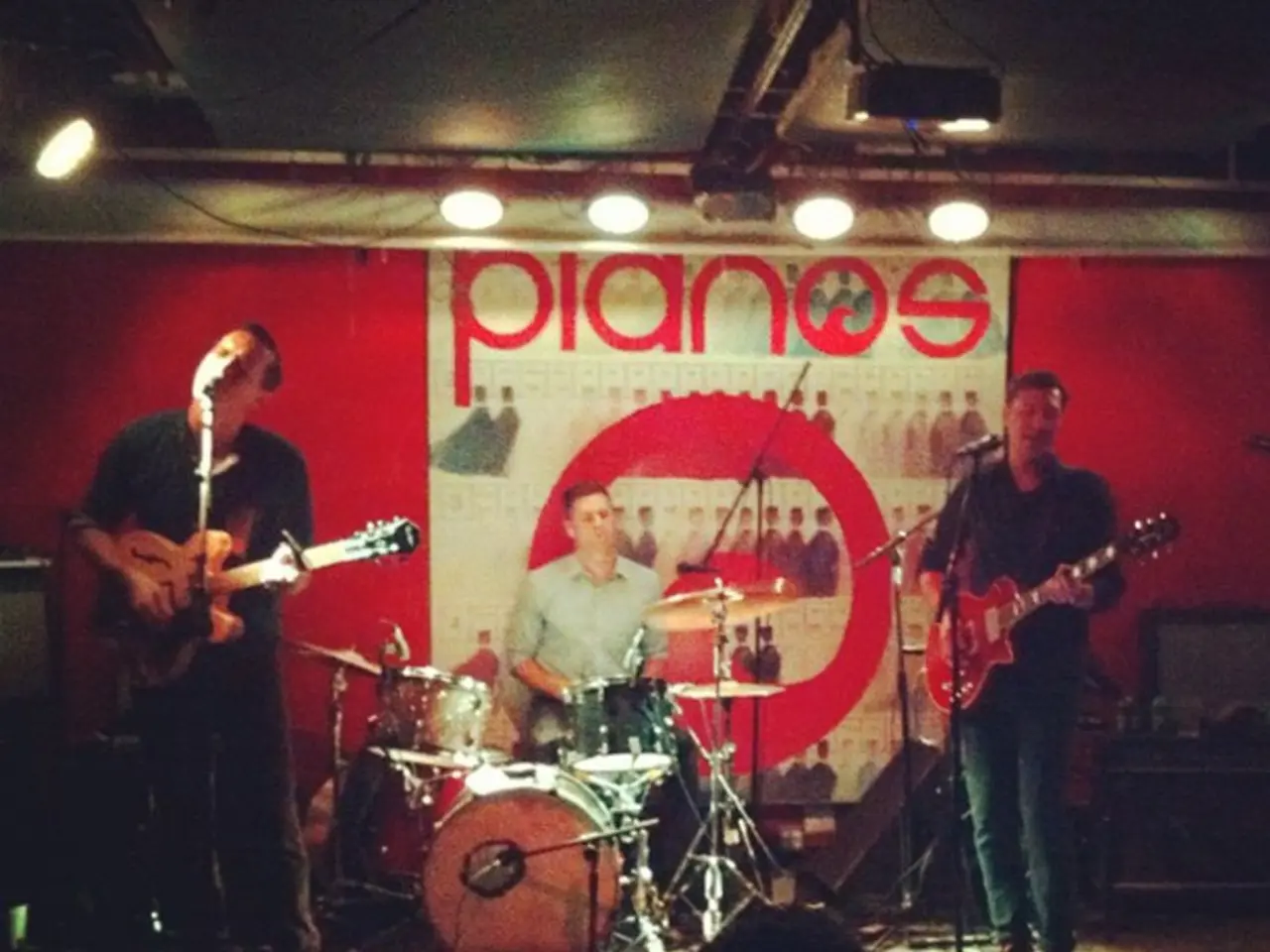Croatian government faces criticism for the 'shameful neo-fascist Woodstock event'
In a move that has sparked worldwide condemnation, Croatian right-wing singer Marko Perković Thompson, known for his nationalist and pro-Nazi sympathies linked to the World War II Ustasha regime, recently held a concert that saw the mass use of Ustasha symbols and slogans. Despite widespread criticism, Thompson was allowed to perform due to a complex interplay of legal, political, cultural, and public sentiment factors.
Legal court rulings have granted Thompson the right to use Ustasha symbols as part of his songs, framing his performances as artistic expression rather than explicit political rallies. This legal nuance allows him to avoid breaching current laws, even though the Ustasha salute and symbols are punishable by law in Croatia.
The government's stance has also been a point of contention. Croatian authorities, including the left-wing mayor of Zagreb, Tomislav Tomašević, have rejected calls to ban Thompson's performances, considering bans to be “counter-productive.” The government's response has been criticized for its lack of public condemnation of Ustasha symbols, which sends ambiguous signals about their acceptability.
Among many Croatian fans, Thompson is seen as a patriot who promotes traditional values such as homeland, religion, and family. Historian Hrvoje Klasic notes that his popularity does not necessarily indicate rising far-right support but reflects Croatia's traditional patriotic inclination with a right-leaning cultural background.
The political context also plays a significant role. The presence of nationalist political forces in government, such as the Homeland Movement, which emphasizes nationalist and anti-migrant rhetoric, reflects and possibly reinforces a more tolerant environment toward such symbolism.
Critics, including human rights groups, opposition politicians, and public figures, have vocally condemned the concerts and the government's handling, calling it a disgrace and a failure to confront historical revisionism and fascist symbolism. The main opposition Social Democrats criticized the government for providing logistics and support to a concert where extremist messages were displayed.
The event has been labelled as "the largest fascist rally held in Europe since World War II" by the Youth Initiative for Human Rights NGO. Serbia's parliamentary speaker Ana Brnabic expressed shock at the absence of any EU condemnation of the concert, comparing the Ustasha salute to the Nazi "Sieg Heil" and calling for the EU to make clear that there can be no place on the European continent for such dangerous, hate-filled rhetoric.
Thompson, known by his stage name Thompson, drew nearly half a million fans to his concert on Saturday. The crowd responded to Thompson's song with the illegal Ustasha salute at the concert, a move that was criticized by the left-wing opposition, NGOs, the EU nation's ombudswoman, the Serb minority, and Croatian Serb leader Milorad Pupovac.
Pupovac expressed concern that if Croatia allows space for such messages, he is worried. Ombudswoman Tena Simonovic Einwalter warned about condoning the use of the Ustasha salute at the concert. Thompson was banned from performing in several countries due to his sympathies for Croatia's World War II fascist Ustasha regime.
In recent years, there have been increasing calls for Croatia to stop demonizing its pro-Nazi past and to present the Ustasha as the nation's founding fathers. This controversy comes at a time when the European Union is grappling with rising nationalism and the normalization of far-right ideologies, making Thompson's concert a stark reminder of the dangers that still lurk in modern-day Europe.
- The ethical perspective suggests that human rights groups and public figures are voicing their dismay over the use of Ustasha symbols and slogans, deeming it a disgrace and a failure to confront historical revisionism and fascist symbolism.
- Amidst rising nationalism in Europe, the Croatian singer Thompson, known for his pro-Nazi sympathies, was allowed to hold a concert, which was labeled as the largest fascist rally in Europe since World War II.
- As populist forces such as Thompson and Homeland Movement gain traction in the political landscape, it raises concerns about the normalization of far-right ideologies and the potential for interconnectedness between popular culture, entertainment, and politics.
- Attention has been drawn to the significance of social media and its role in fueling polarized opinions and the dissemination of extremist views during war-and-conflicts, migration debates, and crime-and-justice issues.
- In contrast to the government's perceived ambiguity about the acceptability of Ustasha symbols, cultural-travel organizations and companies that promote cultural exchange have distanced themselves from the singer and his messages, citing the importance of educating tourists about Croatia's complex history.
- As the event served as a stark reminder of the risks in disregarding the dangers of rising nationalism, experts maintain that increased exposure to sci-fi-and-fantasy, pop-culture, and general-news can help foster empathy, understanding, and a more inclusive society alongside concrete actions to combat far-right ideologies.




